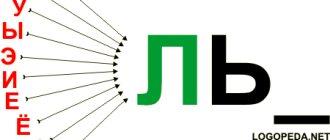Differentiation in the economy
Let us consider this concept as a process of development in relation to different areas of human activity and the signs by which this process occurs.
Differentiation in economics is the established system of economic relations in a particular society. The concept of “society” in this context has a meaning: a separate territorial subject, i.e. a region or an entire state, or the entire world community.
Thus, within the Russian Federation there are many territorial entities whose economic activities are determined historically according to the sectoral principle.
For example, the Krasnodar Territory is an agricultural region, and the Far East is a fishing region. Within the global community: Japan is a country producing high-tech goods, and Ecuador is a global supplier of bananas and oil.
Conclusion: the basis of differentiation in the economy lies in the division of labor according to sectoral and (or) territorial characteristics.
In this case, the following factors are of fundamental importance to the level of differentiation:
- provision of labor resources;
- production volumes;
- the degree of implementation of scientific achievements in the production process;
- target orientation of production;
- factors in the socio-political sphere: the level of economic development of an economic entity,
- the degree of development of economic relations with other entities,
- legal basis.
This should not be confused with the economic aspect of social differentiation, i.e., with the division of society into layers with different income levels.
Thus, in the Russian Federation, the differentiation of incomes of the population has reached enormous values: the difference in the salaries of the ten percent of the highest paid and ten percent of the least paid workers reaches 40 times! This is almost 8 times higher than in economically developed countries.
What can be differentiated in psychology
Differentiation in psychology means the ability of an individual to be an individual (what is this?), while remaining a socialized member of society.
A simple example: there is a person, he is socialized, that is, he adequately coexists with the other members of any group, fulfills his civic duties in relation to the state in which he lives.
But at the same time, he has his own hobbies, spiritual attachments, and his own point of view. The higher the psychological differentiation of a person at a normal level of socialization, the more stable he is psychologically, the more valuable he is as a person .
It is worth noting that excessive passion for computer “shooters” has a detrimental effect on the unformed child’s psyche.
Immersed in the virtual world, the child ceases to develop psycho-emotionally, that is, is inhibited and adequate socialization in society does not occur.
Language differentiation
This term in linguistics implies the emergence of new varieties of language. Simply put, this is the emergence of adverbs, dialects and dialects.
Example: the Russian language exists, but in almost every “outback” it has its own peculiarities. So, in one district of the Tver region they say not “mountain”, but “gorushka”, not “go”, but “go”. And there are countless such changes in the Russian language, as, indeed, in the languages of the whole world.
There are 3 main reasons for language differentiation:
- territorial (example - in the previous paragraph);
- social – changes occur due to the differentiation of society into different social groups. An example is youth slang (remember, I wrote about what ChSV, momo and the like are);
- functional-stylistic – changes occur as a result of the introduction into everyday use of words from scientific, official business, journalistic and colloquial vocabulary. For example, “IT technologies” (scientific style); “notarial deed” (official business); “an act of unprecedented cruelty” (journalistic); “to go fishing” (colloquial style).
Differentiation of sounds and letters U-Oplan-compendium on the topic
A lesson using specialized electronic educational resources, the reproduction of which is didactically most justified on an interactive whiteboard.
Dragunova Elena Ivanovna
Municipal educational institution - Information and Technology Lyceum No. 24 of Neryungri (MOU ITL No. 24 of Neryungri).
Subject: subgroup speech therapy lesson, consolidation of material.
Topic: Differentiation of sounds and letters “O - U”.
Duration: 35 minutes.
Class: 2.
Technologies: computer presentation Microsoft Office Power Point, interactive whiteboard.
Tasks:
- clarification and comparison of articulation and sound of sounds O - U;
- improvement of sound-letter and syllabic analysis and synthesis;
- development of visual memory, visual-spatial orientation;
- enrichment of vocabulary.
Equipment: interactive whiteboard, computer, fan of letters, syllabic cards, colored pencils, pens.
- Organizing time. Speech therapist:
Guys, I’ll tell you riddles now, and you try to guess them. (If you have difficulty, slide No. 1 on the interactive whiteboard)
This letter is like a hoop; if I want, I’ll swing it along the way.
This letter looks like a snail's horns. Who guessed? (These are the letters O - U)
What are the similarities between the sounds U and O? (Sounds O and Vowels. The sound O is like a hoop, the mouth is open, the lips are rounded, the chin drops. When we pronounce the sound U, the lips are elongated, the teeth do not close, but the chin does not drop.)
- Main part
- Isolating the sounds O and U in words. Speech therapist. (fan with letters)
I will name the words, and you must determine by ear what sound is in the word O or U and raise the corresponding letter.
Autumn, mole, twig, friend, horse, pipe, coward, bridge, duck, piece.
- Working with syllables (spatial orientation).
Speech therapist. (The interactive board shows syllables with vowels O and U)
- There are syllables in front of you (slide No. 2 Read the second line from the bottom. Which syllable is extra in this line and why? Read the third column on the right. Which syllable is extra in this table and why? Etc.
bo - bu - bo ku - ko - ku mo - mu - mo so - su - so
- Working with cards “Add the word”
Speech therapist: in front of you are rollers on which syllables are written in two columns. You need to come up with and write down words that begin with a syllable from the first column (pen, bag, bun). Come up with words that end with a syllable from the second column (lock, boot, leaf).
ruch mok
sum pog
bull current
- Physical education minute.
If we’ve worked hard, let’s rest, get up, and take a deep breath.
Hands to the sides, forward. Left, right turn.
Three bends, stand up straight. Raise your arms up and down.
They lowered their hands smoothly and gave smiles to everyone.
- Working with proposals. Speech therapist: (slide No. 3; No. 4; No. 5; No. 6; No. 7)
-There is a sentence in front of you (a sentence is shown on the interactive board). Read it, please (the screen closes). Who can repeat what sentence was written on the board? Let's write it down.
Then the children work independently. Sentences are shown one by one on the interactive board. After reading the sentence, the screen closes, the children write down what they read from memory in their workbooks, highlighting the vowels O and U with a red pencil.
Vova hurt his leg. Tonya carries water. Gosha has new galoshes. A shepherd grazes a herd of cows. Kolya takes Lusha to school.
A mutual inspection of the work is carried out.
f) Game “Letters are lost”
— Here is a picture in which the letters U and O are missing. There is an image of the picture on the interactive board. (slide No. 8)
-Look carefully at what is shown in the picture?
You have the same paintings on your tables, only small ones. You need to find the lost letters and circle them with a red pencil.
-Why do we highlight the letters U and O with a red pencil? (Because they are vowels)
3. Summary of the lesson. Speech therapist.
- What sounds and letters did we talk about today in class?
— Were you able to complete all the tasks?
— What didn’t work out and why?
D/z: color the picture in which the missing letters were found.
In science
Differentiation in science means the separation of new disciplines from a certain scientific direction as knowledge accumulates.
This process is inseparable from scientific progress. Research within a narrow specialization allows one to gain a deeper insight into the essence of phenomena and processes.
This process is similar to a chain reaction: as information accumulates from the “mother” science, a “daughter” direction is highlighted. It develops, and with the expansion and deepening of knowledge about its object, it differentiates into several more scientific disciplines. And this can continue indefinitely.
Example: the study of the heredity of biological organisms led to the creation of a new scientific field - genetics. Then new specializations emerged from this discipline - medical genetics, molecular, biochemical. And the development of these areas, in turn, will inevitably lead to the creation of new disciplines.
Let us visually examine differentiation in science using the example of pedagogy:
*click on the picture to open it full size in a new window
The diagram shows only 3 levels of pedagogy as a science. The development and deepening of third-level knowledge will lead to the creation of differentiation at the next level.







